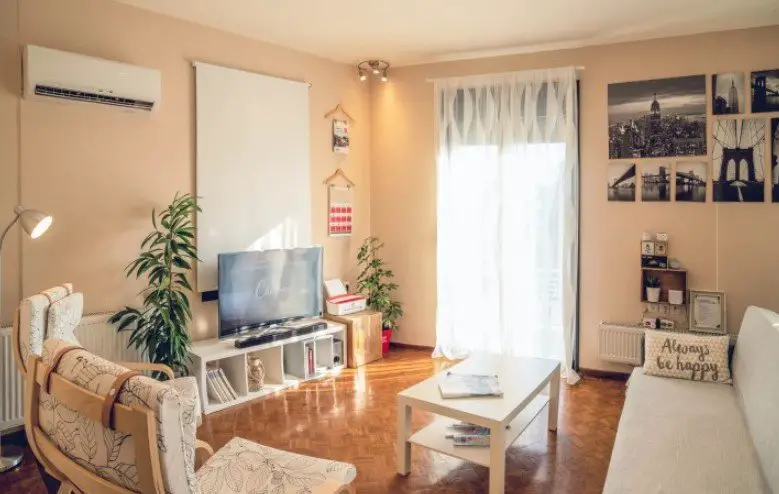Last Updated on July 12, 2023 By Emma W. Thomas
The equivalent of Airbnb in China is a platform called “Tujia” (途家). Tujia is a popular online vacation rental platform that operates similarly to Airbnb. It offers a wide range of accommodations, including apartments, villas, and unique properties, for travelers to book in various cities across China. Tujia provides a platform for property owners to list their spaces and for travelers to search, book, and review their stays. It is a well-established and trusted platform within the Chinese market.
List of Platforms Equivalent of Airbnb in China
In addition to Tujia, which is a prominent vacation rental platform in China, there are a few other popular equivalents of Airbnb in the country:
- Xiaozhu (小猪短租): Xiaozhu is one of the largest home-sharing platforms in China, offering short-term rentals across various cities. It provides a wide range of accommodations, including apartments, houses, and vacation rentals, catering to both domestic and international travelers.
- Ctrip (携程): Ctrip is a leading online travel agency in China that offers a range of travel services, including hotel bookings, flights, and vacation rentals. Through its platform, users can search and book short-term rentals and homestays in various destinations.
- Meituan Short-Term Rental (美团短租): Meituan is a popular all-in-one platform for services in China, including food delivery, hotel bookings, and more. Meituan also offers a short-term rental service where users can find and book accommodations in cities across China.
- Qunar (去哪儿): Qunar is another major online travel agency in China that provides hotel bookings, flights, and vacation rentals. It offers a selection of short-term rentals and homestays that cater to different travel preferences.
How is the Airbnb China alternative impacting the travel industry?

The presence of Airbnb alternatives in China, such as Tujia, Xiaozhu, Ctrip, Meituan Short-Term Rental, and Qunar, has had a significant impact on the travel industry in the country. Here are a few ways these alternatives have influenced the industry:
- Increased Accommodation Options: The presence of these platforms has expanded the range of accommodation options available to travelers in China. They offer a variety of properties, including apartments, houses, and vacation rentals, providing travelers with more choices beyond traditional hotels. This increased diversity has enhanced the overall travel experience and catered to different preferences and budgets.
- Boosted Competition: The rise of Airbnb alternatives has introduced increased competition to the travel industry. Traditional hotel chains and established accommodation providers have had to adapt and innovate to remain competitive in the market. This has resulted in improved services, pricing, and amenities, benefiting travelers with better options and potentially lower prices.
- Empowered Property Owners: These platforms have empowered property owners by providing them with a means to monetize their properties and generate income. Individuals who own spare rooms, vacation homes, or investment properties can list them on these platforms, offering travelers alternative accommodation choices. This has encouraged entrepreneurship and contributed to the sharing economy in China.
- Enhanced Traveler Experiences: The availability of Airbnb alternatives has enriched the travel experiences of both domestic and international travelers in China. Staying in local homes or unique properties allows travelers to immerse themselves in the local culture, gain a deeper understanding of the destination, and experience a more authentic stay. The personalized touch and local insights provided by hosts can significantly enhance the overall travel experience.
- Challenges for Traditional Hotels: The rise of these platforms has presented challenges for traditional hotels, as travelers now have more options beyond conventional hotel stays. Hotels have had to adapt by offering unique services, improving customer experiences, and adjusting pricing strategies to remain competitive in the evolving market.
How Tujia, ‘China’s Airbnb’, is different from Airbnb
Tujia, often referred to as “China’s Airbnb,” differs from Airbnb in a few key ways due to its specific focus on the Chinese market:
- Localized Presence: Tujia primarily operates within China and has a strong focus on the domestic market. It caters to Chinese travelers looking for accommodations within the country, as well as international travelers visiting China. In contrast, Airbnb has a global presence and operates in numerous countries worldwide.
- Property Management Services: Tujia offers property management services to hosts, providing assistance with property maintenance, cleaning, and other operational aspects. This is particularly beneficial for hosts who may not have the time or resources to manage their properties on their own. Airbnb, on the other hand, primarily functions as a platform connecting hosts and guests, without the same level of dedicated property management services.
- Property Verification and Quality Control: Tujia places a strong emphasis on property verification and quality control. It has implemented strict requirements and standards for property listings to ensure they meet specific criteria. This focus on quality control helps build trust among users and ensures a consistent experience. While Airbnb also has verification processes and quality standards, Tujia has tailored its approach to align with the expectations and preferences of the Chinese market.
- Integration with Local Services: Tujia has integrated with local service providers to offer additional amenities and services to guests. This includes partnerships with cleaning services, travel agencies, and other relevant service providers to enhance the overall guest experience. Airbnb also has partnerships with certain service providers but may not have the same level of integration and localized offerings as Tujia in the Chinese market.
- Cultural Sensitivity: Tujia understands the cultural nuances and preferences of Chinese travelers and incorporates them into its platform. This includes catering to specific Chinese travel habits, preferences for certain amenities, and addressing language and communication needs. Airbnb, being a global platform, may not have the same level of tailored offerings and features specifically designed for Chinese travelers.
What makes China’s Airbnb special?
Before the launching of Tujia, many Asian and Chinese tourists had trust issues with Western Airbnbs. The quality of services and handling of guests by Western hosts in the US was different from China. Moreover, China is the largest housing country globally, hence has many reservations compared to Airbnbs of other countries. Tujia has over 300,000 properties on its site within the country. Out of these, it only manages 10,000 of them online, while others are left to third-party members.
For instance, a single manager handles 20 to 30 apartments in Beijing. It has over 100 reservations overseas, and it’s still working to expand its services globally, literally to every point that Chinese tourists can visit. Another notable difference is the services offered in Tujia, China’s Airbnb. Tourists in Tujia receive all services, including removing plates on tables after meals and cleaning up the mess. It is slightly different from Airbnb services in other countries that assume guests can handle such tasks.
China’s Airbnb hosts also offer car rentals in partnership with other businesses like Ctrip. It is not the case in other Western Airbnbs, where hosts have trust issues with their guests, especially after banning parties. Some of China’s Airbnb, like Tai Hu in Suzhou, rent bicycles and cars to guests to allow them to enjoy themselves during trips and vacations. However, these services entirely depend on the reserve’s location, the guest’s package, and whether they will need them.
Overseas countries targeted by China’s Airbnb expansion
As Tujia expands its borders across the globe, it has mainly targeted countries frequently visited by most Chinese tourists. Tujia prioritizes Asian countries like Korea, Japan, Hong Kong, and Taiwan before establishing its services in other parts of the world. Most Chinese tourists who visit these places are families that prefer certain services like villas. Besides these services, houses with kitchens for vacations are better for Chinese tourists because most Chinese people love cooking.
Business partners of Airbnb equivalent in China

Tujia has become a $1 billion business start-up since its introduction in 2011 through the help of investors and support from other business partners. It constantly works with big companies like GGV Capital, Ctrip, Ascott, Venture Partners, HomeAway, and LighSpeed to complement its growth and expansion in service delivery. By learning from the experiences of these companies, Tujia also gets assistance by displaying the listings on their sites.
Cost of Airbnb and hotels in China
Many guests prefer staying in Airbnb to hotels for various reasons, with cost being one of the main determinants. Airbnbs in China is generally cheaper than hotels. Like hotels, you may also pay a premium price on China’s Airbnb as a guest during holidays and weekends. Some Airbnb’s may be costly, particularly the high-end types. Nevertheless, Airbnbs in China tend to be affordable since they don’t pay overhead fees like hotels.
Pros and cons of Airbnb hosting in China
All Airbnb hosts have different experiences with running their businesses in China and worldwide.
The table below shows the benefits and downsides of Airbnbs, particularly in China.
| Advantages of Chinese Airbnb | Disadvantages Chinese Airbnb |
| 1. Higher income for short-term stays 2. Hosts have the mandate to choose the hosting dates depending on their schedule. 3. Managers are involved in offering full-service management Allowing client assessment before acceptance 4. There’s high demand for services. | 1. It requires a host service fee for the operation 2. No guarantee of bookings and continuous income 3. Requires more time and energy; to reply to clients’ messages, constant cleanups, etc. 4. Bad reviews due to uncontrollable circumstances are seen by all future clients. 5. Not all guests are considerate; they may destroy your property. |
The advantages and disadvantages of Airbnbs in China are similar to other states. But, as a host, taking precautions and necessary measures is important to keep guests coming as you focus on business growth.
Airbnb registration process in China
China’s laws demand that all foreigners should make a temporary registration for verification within 24 hours of arrival. This rule applies to all guests from other countries regardless of their travel documentation to China. Even so, the verification process is quite easy compared to other countries, and you can do it by following the simple steps below:

Step 1: Submit your traveling documentation to local authorities for registration
Take your visa card and passport to the local authorities upon arrival. It helps with the verification and identification of all guests to access services like Airbnb hosting within the country. You will also need to submit your passport and visa photos.
Step 2: Ensure the registration is complete
In most cases, it is the role of your host to ensure you’re completely registered. However, what happens is that some hosts may ignore taking part in the process. The guests are always liable to face the consequences of illegal residence while no action is taken against the hosts. It is, therefore, good to confirm the completion of the registration process, which takes about one to two hours on average.
Challenges of using Airbnb in China
Most foreign travelers face many challenges, as local Chinese are only a fraction of the majority of travelers. Irresponsible hosts are always the main hindrance to foreign travelers in China. As mentioned above, some hosts deliberately fail to help their guests during the registration process for verification. Often some guests face unexpected charges as they have to spend more to pay up for illegally staying in the country. Once in a while, guests may be forced to go back to their countries for failing to comply with the Chinese laws of foreign traveling. This leads to disappointment because of irresponsible hosts.
The second is limited interaction because of language barriers and suspicious communities. The absence of an interpreter in some low-end reservation areas makes communication difficult. In addition, guests who prefer staying in quiet environments have to stay low-key. Most Chinese communities are trained to report any suspicious activity from foreigners, particularly those from noisy interactive environments. There’s the likelihood that such guests should expect a police visit, which may drastically limit the planned activities for guests who love exploring different cultures.
Airbnb application for Chinese visas
It is impossible to apply for a Chinese visa using Airbnb in most cases. A Visa application in China requires proof of accommodation, and Airbnb may not fulfil this requirement. Local home applications will require you to have an invitation from the Airbnb host of your choice. Apart from that, there are alternatives to satisfy booking using a visa application.

Chinese cities popular on Airbnb platforms
China’s step in embracing Airbnb has brought competition for hotels, as most tourists prefer staying in rentals in specific cities. Currently, Shanghai is the most dominant city on China’s Airbnb. Likewise, other cities like Chongqing, Beijing, Guangzhou, and Chengdu greatly contribute to China’s online bookings. The availability of many tourist attraction sites and businesses in these cities remains the main source of Airbnb guests who travel for transactions, international business matters, and sightseeing.
How China’s Airbnb host succeeds over foreign hosts in the country
Surprisingly, China’s local Airbnb services have dominated foreign hosting companies, despite China’s recent company start-ups. For instance, Tujia is a common hosting company that has taken part in China’s online bookings due to the following reasons:
- Choosing properties that fulfill all client requirements
Tujia prefers choosing venues that will satisfy the needs and demands of every client. This is contributed by the available space and demand for reservations, amounting to 50 million unoccupied homes in China. Additionally, Tujia makes a follow-up to guests who leave negative reviews to find out the cause of the problem and work on the mistakes accordingly. For most foreign companies, negative reviews are left for the hosts as long as they get profits.
- Targeting business class people who require high-end furnishings
Prioritizing the right guests who generate a lot of income has gradually boosted local hosting companies. As usual, many business people tend to stay for shorter periods in expensive avenues. The result is the generation of more money since high-end furnishings are costly in terms of charges per night. However, other foreign companies focus on lowering costs and accommodating many guests who stay for long at a lower price.
- Strictly focusing on business growth
Chinese hosting companies are backed up by big brand investors like Ctrip, one of China’s largest online travel operators. Such home-sharing investments make local Airbnb services control over half of the listings. These business collaboration tactics have expanded local hosting services overseas to generate more funds.
Final Thoughts!
In China, Airbnb’s equivalent, Tujia, is a good online booking platform to use as long as you take care of the registration process upon arrival. Besides the challenges in China, it continues to rival other Airbnb services in its efforts to expand its services globally. Most tourists prefer using Airbnb’s services in China compared to hotels, and it is a good option for all travelers.
References:
https://www.saporedicina.com/english/airbnb-in-china/
https://www.forbesindia.com/article/ckgsb/how-tujia-chinas-airbnb-is-different-from-airbnb/48853/1
Emma is a graduate of Domestic Science or Family and Consumer Sciences (Home Economics) from the University of Wisconsin. She has 7 years of experience Working with the strategic section of BestBuy and now writing full-time for Homeeon.
From Managing the Home, Interiors, Cleaning, and Exteriors to Gardening and everything about Making A Home Liveable – is her passion and this Homeeon is the result of this.
Emma loves decorating her home with the best stuff found online. She cares about quality over anything and writes reviews about them here in Homeeon. Get in touch with her over Pinterest.
Keep reading her blogs.

